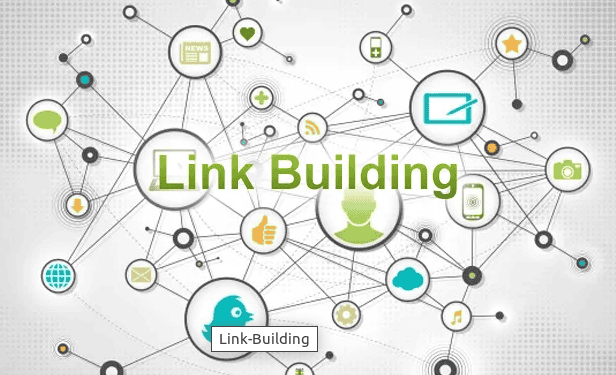Hey there friend! Do you dream of that coveted top spot on Google, where clicks are plentiful and your business thrives? The secret isn’t just about having a great website; it’s about mastering the art of link building.
Why Links are the Secret Sauce of Google’s Algorithm
Think of backlinks as votes of confidence for your website. When other reputable and relevant websites link to yours, it signals to Google that your site is a valuable resource. This is a major factor in how Google generates search results. The more high-quality backlinks you have, the higher Google will rank your site. In fact, a recent study showed a clear correlation between the number of backlinks from unique domains and Google ranking. It’s not just about getting a lot of links, it’s more important to get them from different websites.
Forget Quantity, Focus on Quality: Not All Links are Created Equal
In the old days, you could trick Google by getting a ton of low-quality links. These days, Google is much smarter. The search engine does not treat all links equally. It’s now about the quality of those links that matters most.
What Makes a Link “Good”?
- Authority of the Linking Page: A link from an authoritative website is far more valuable than a link from a low-authority site. Google measures a site’s authority using something called PageRank. While Google doesn’t publicize PageRank anymore, tools like Semrush and Moz have their own authority metrics you can use. For example, a link from the BBC website, with a domain authority of 94, is much more valuable than a link from a site with a domain authority of 19.
- Relevancy: It’s not enough to get a link from a high-authority site. The topic of the linking site must be relevant to your site. A parenting blog is a better source of links if you sell baby products, than a car website.
- Link Placement: Where the link appears on a page matters. A link placed prominently in the main body of an article is more valuable than one hidden in the footer or sidebar.
- Editorial Placement: Google prefers links that are naturally placed, or editorially placed, by a site owner who thinks your content will help their readers. Links in blog comments, article directories or user profile pages are not as appropriate. A section of links at the bottom of a webpage will likely be seen as unnatural and hold very little authority.
- Anchor Text Keywords: The text of the link (anchor text) is also important. Google uses it to understand the content of the destination page. If many websites link to your page using the phrase “download,” your page will likely rank high for that keyword.
- Links from Different Domains: A recent study shows that the number of unique linking domains is more important than the total number of backlinks. So, it’s better to have links from 10 different websites than 10 links from the same website.
- No Follow vs. Do Follow: A “no follow” attribute added to a link in the code tells Google to not pass page rank to the target site from the link. This link will not help the target page to rank higher. Standard links, referred to as “do follow” links, do not have the no follow attribute and will pass authority to the destination site.

Passive Link Building Strategies: The “Set It and Forget It” Approach
The best way to build links is passively by creating high-quality content that other websites want to link to. This could be existing content or content specifically created with link building in mind. Here’s how to do it:
- Long-Form Content is King: Longer content tends to attract more links. It also gets more clicks and performs better in search results.
- Visual Assets are Powerful: Images, diagrams, infographics, and charts are great for link building. When someone shares your infographic, they’ll likely include a link back to your site.
- Create “Linkbait”: Certain types of content are more likely to attract links. These include:
- Original Research: Conduct studies, analyze data, and share your unique findings.
- List Posts: Create well-organized lists with helpful and interesting information.
- In-Depth Guides: Develop comprehensive guides on specific topics.
Active Link Building Strategies: Get Out There and Make it Happen
Passive link building is great, but sometimes you need to be more proactive. Here are some strategies for actively building links:
- Spy on Your Competitors: Analyze your competitors’ backlinks to identify relevant link targets. Use tools like Ahrefs’ backlink checker to find out which sites are linking to them, and then ask those same sites to link to yours.
- Broken Link Building: Turn Lemons into Link Juice: Identify broken links on competitor sites, contact the site owner, and suggest they replace the broken link with a similar page on your website. Tools like Ahrefs’ broken link checker can be used to find broken links on a site.
- Email Outreach: The Art of Persuasion: Contact relevant websites and ask them to link to your resources. You can use a backlink checker to see who links to similar resources, and then reach out to those sites.
- Guest Blogging: A Win-Win Scenario: Publish original content on other relevant blogs and get a link back to your website. Popular blogs need a constant stream of content, so they may be happy to publish a well-crafted article from you.

Link Building Pitfalls: What to Avoid At All Costs
Some link-building strategies that may have worked in the past can actually harm your search engine performance today. Avoid these strategies:
- Paid Links: Paying for links is a big no-no. Google has ways of spotting paid links and will penalize your site.
- Excessive Link Exchanges: While it’s okay to link to sites you work with, avoid excessive link exchanges done solely for the sake of link building.
- Low-Quality Directory Links: Most directories are now seen as low-quality by Google. However, a very niche directory might still be useful.
Conclusion: Building Your Way to the Top
Link building is essential for improving your website’s search engine ranking, which is vital for any online business. By focusing on quality over quantity, creating great content, and using the right strategies, you can improve your website’s authority and climb the search results page. Remember to avoid the link-building traps that can hurt your site. Don’t be tempted to take shortcuts. With patience and persistence, you can achieve top ranking and keep your site high on Google’s results page!
FAQs
How many backlinks do I need to rank high? There’s no magic number. It’s about the quality of the links, not just the quantity. Focus on getting links from authoritative, relevant websites, and from different websites.
How long does it take to see results from link building? It takes time. It is not an immediate process. Link building is an ongoing process, and it takes time to see the effects of your efforts. Don’t get discouraged if you don’t see results right away. Keep creating great content and building links, and you will see the effects of this effort over time.
Is it okay to use link-building tools? Absolutely! Tools like Ahrefs and Moz can help you analyze backlinks, find broken links, and identify link targets. However, remember that it’s about quality, so use the tools in the context of improving quality. Don’t use tools to automate poor quality link-building!

